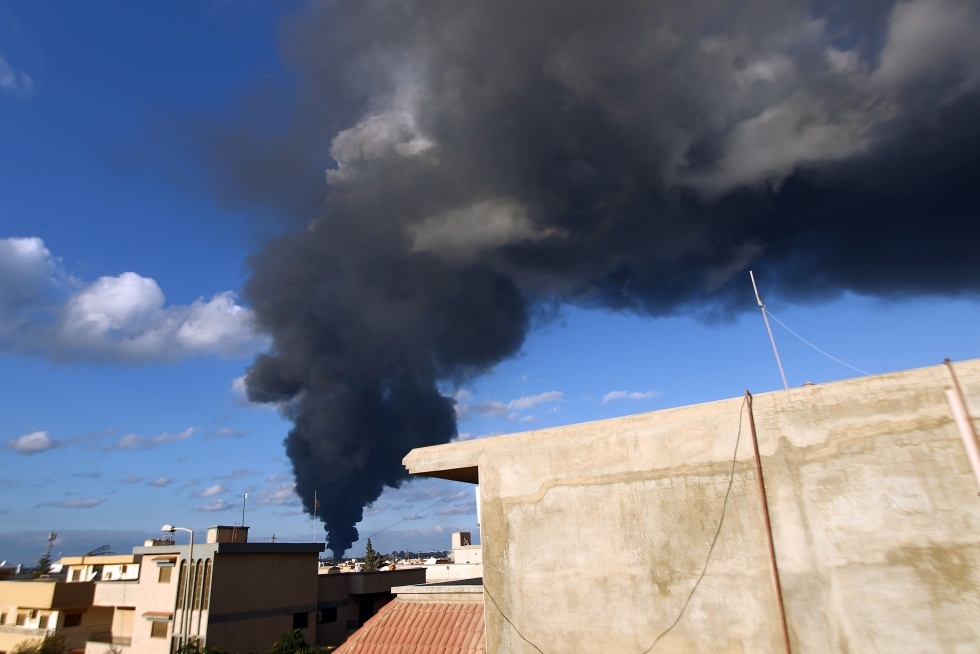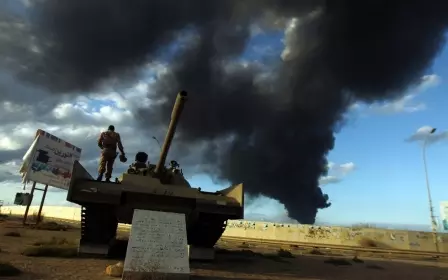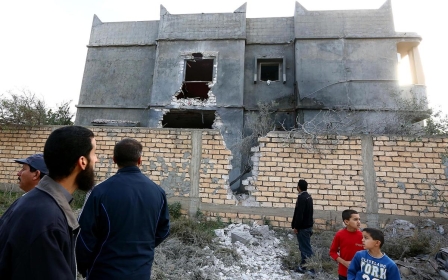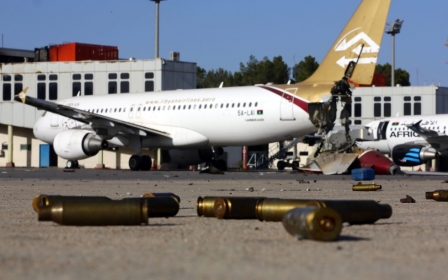Libya's oil tanks ablaze after firefight near terminal

Three storage tanks at one of Libya's main oil terminals were ablaze on Friday after being hit by a rocket during fighting between rival forces, officials said.
For over two months, military forces loyal to the Tobruk-based House of Representatives (HoR) have been engaged in confrontations with militias loyal to a rival Tripoli-based parliament, the General National Congress (GNC).
The rocket was fired on Thursday by militiamen from Fajr Libya (Libya Dawn), a coalition of fighters allied to the GNC.
One tank was hit, said the region's security spokesman Ali al-Hassi, before the fire spread on Friday to two other full tanks at Al-Sidra terminal.
Witnesses said huge columns of smoke filled the sky over Al-Sidra and were being blown further east towards Ras Lanuf terminal.
They expressed concern that the fire could spread to other tanks at Al-Sidra and cause an environmental disaster if not brought under control.
National Oil Company spokesman Mohamed al-Harari urged everyone to respect the neutrality of oil terminals, adding that the tanks that were hit were full and ready for export.
On Thursday, the pro-GNC fighters killed 22 pro-HoR troops in a surprise attack during which they used speedboats in a failed bid to seize Al-Sidra and other terminals in the eastern region of Libya known as the "oil crescent".
Hassi said the attack was repelled.
On Friday, the fighting had subsided but reports said the situation was still tense.
The latest clashes pushed oil prices higher in Asia on Friday, with US benchmark West Texas Intermediate for February delivery rising 28 cents to $56.12, while Brent for February gained 13 cents to $60.37.
Since the clashes erupted on December 13, Libyan oil production has fallen to nearly 350,000 barrels per day compared with 800,000 previously, according to industry experts.
"The Libyan people are in the front lines fighting terror against radical groups on behalf of western powers whose policy makers are too proud to admit their mistakes with Libya," Mabruk Derbesh, an academic and university professor based in Poland, told MEE.
"The war in Libya is real and it may have a ripple effect on Europe sooner than later," he added.
New MEE newsletter: Jerusalem Dispatch
Sign up to get the latest insights and analysis on Israel-Palestine, alongside Turkey Unpacked and other MEE newsletters
Middle East Eye delivers independent and unrivalled coverage and analysis of the Middle East, North Africa and beyond. To learn more about republishing this content and the associated fees, please fill out this form. More about MEE can be found here.




